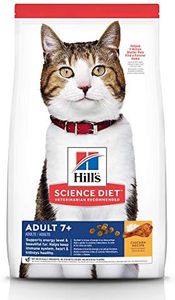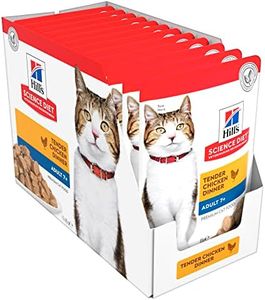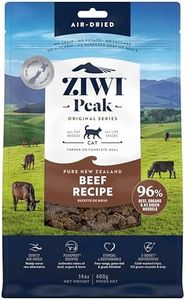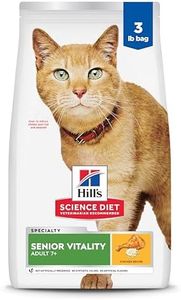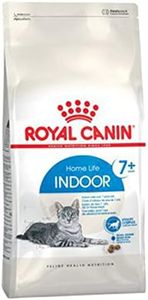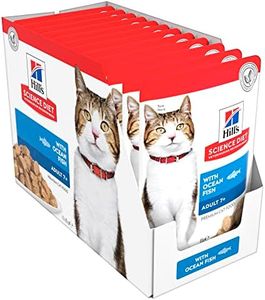We Use CookiesWe use cookies to enhance the security, performance,
functionality and for analytical and promotional activities. By continuing to browse this site you
are agreeing to our privacy policy
10 Best Cat Food For Senior Cats
From leading brands and best sellers available on the web.By clicking on a link to a third party's website, log data is shared with that third party.
Buying Guide for the Best Cat Food For Senior Cats
Choosing the right cat food for senior cats is important because their dietary needs change as they age. Older cats are often less active and may experience weight changes, joint issues, and sensitivities with digestion or teeth. It’s best to identify your senior cat’s unique health needs, observe any recent changes in their eating habits, and select a food that supports their overall well-being. Regular check-ins with your veterinarian are also helpful when evaluating your cat’s diet and making adjustments if necessary.Protein ContentProtein is crucial for maintaining muscle mass, especially as cats age. Senior cats can lose muscle more easily, so food with slightly higher or easily digestible protein supports their strength and health. Generally, foods with moderate to high protein (around 28% to 36% for dry food, or 7-10% for wet food) are beneficial. If your cat has kidney problems, your vet may suggest a lower or special type of protein, so always consider any underlying health conditions.
Fat ContentFat provides energy and helps in the absorption of certain vitamins. Older cats may not be as active, so lower fat content can help prevent weight gain, but too little fat might make food unappealing. Most senior cat foods contain moderate fat levels. Choose foods with moderate fat if your cat is maintaining a normal weight, and lower fat options if your cat is less active or gaining weight easily.
DigestibilityDigestibility refers to how easily a cat can process and absorb nutrients from their food. Senior cats may have sensitive stomachs or weaker digestive systems. Food designed to be highly digestible is gentler, reduces stomach upset, and ensures your cat is actually benefiting from what they eat. If your cat often vomits or has loose stools, highly digestible food may be essential.
Added Joint SupportIngredients like glucosamine and chondroitin support joint health and mobility, which can decline as cats age. If your senior cat is showing signs of stiffness, slowing down, or has arthritis, selecting food with added joint support can be helpful. If your cat still moves comfortably, this feature may be less critical, but it can be a good preventative measure.
Caloric DensityCaloric density means how many calories are packed into the food. Since senior cats are usually less active, food with moderate to lower caloric density can help prevent unwanted weight gain. On the other hand, if your senior cat is losing weight, consider food with slightly higher calories. Adjust based on your cat's activity and weight trends.
Texture and Kibble SizeSenior cats might have dental issues or missing teeth, so the texture and size of food is important. Softer or smaller kibbles, or wet/canned food, are easier for them to chew and swallow. If your cat struggles to eat hard food or shows discomfort, choose softer options or wet formulas to make eating easier and more enjoyable.
Essential Vitamins and MineralsSenior cats need balanced vitamins and minerals for immune support, healthy aging, and organ function. Look for foods with added antioxidants (like Vitamin E and C), taurine, and Omega-3 fatty acids, which can help with brain and heart health. If your cat has specific deficiencies or health concerns, consult your vet for advice on what to prioritize.

